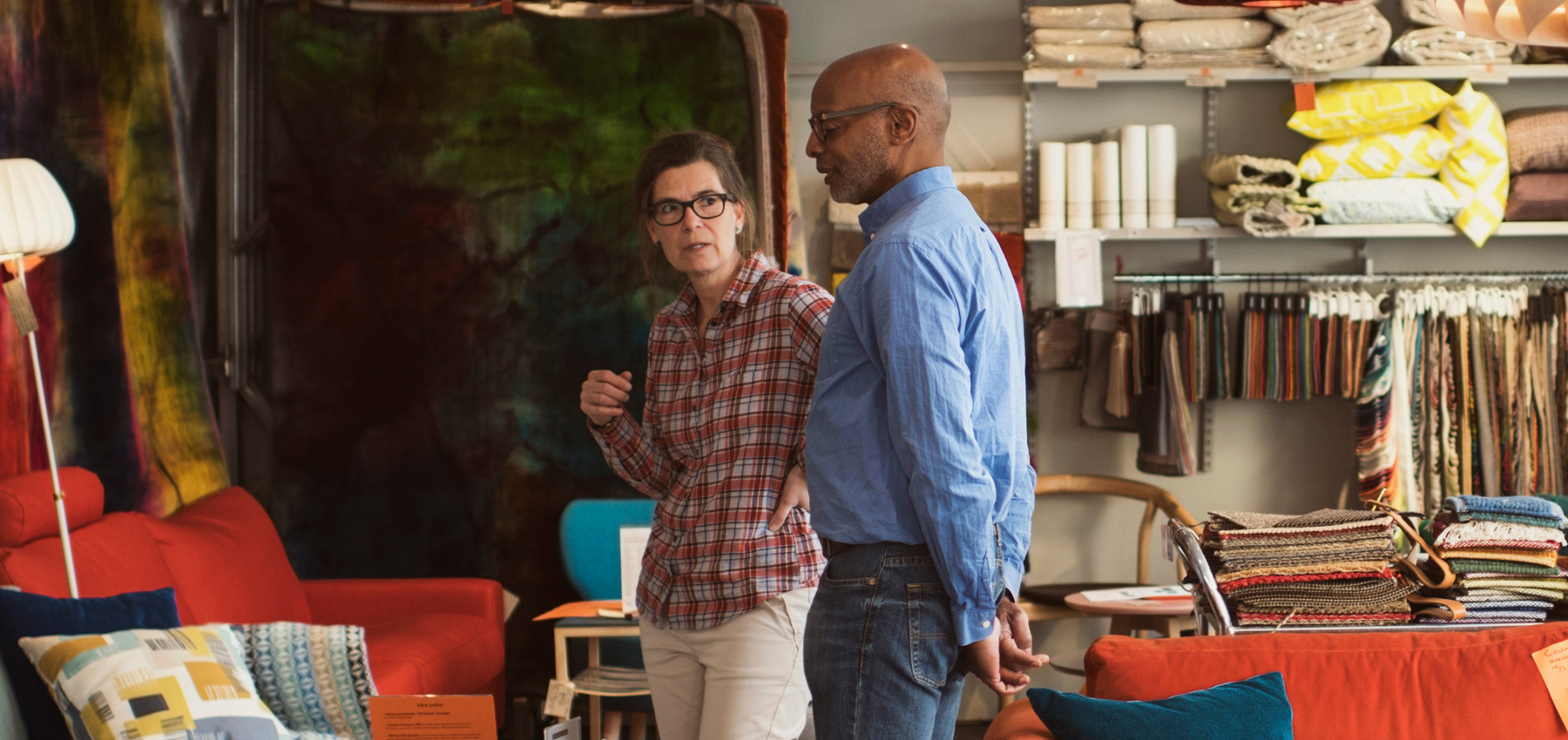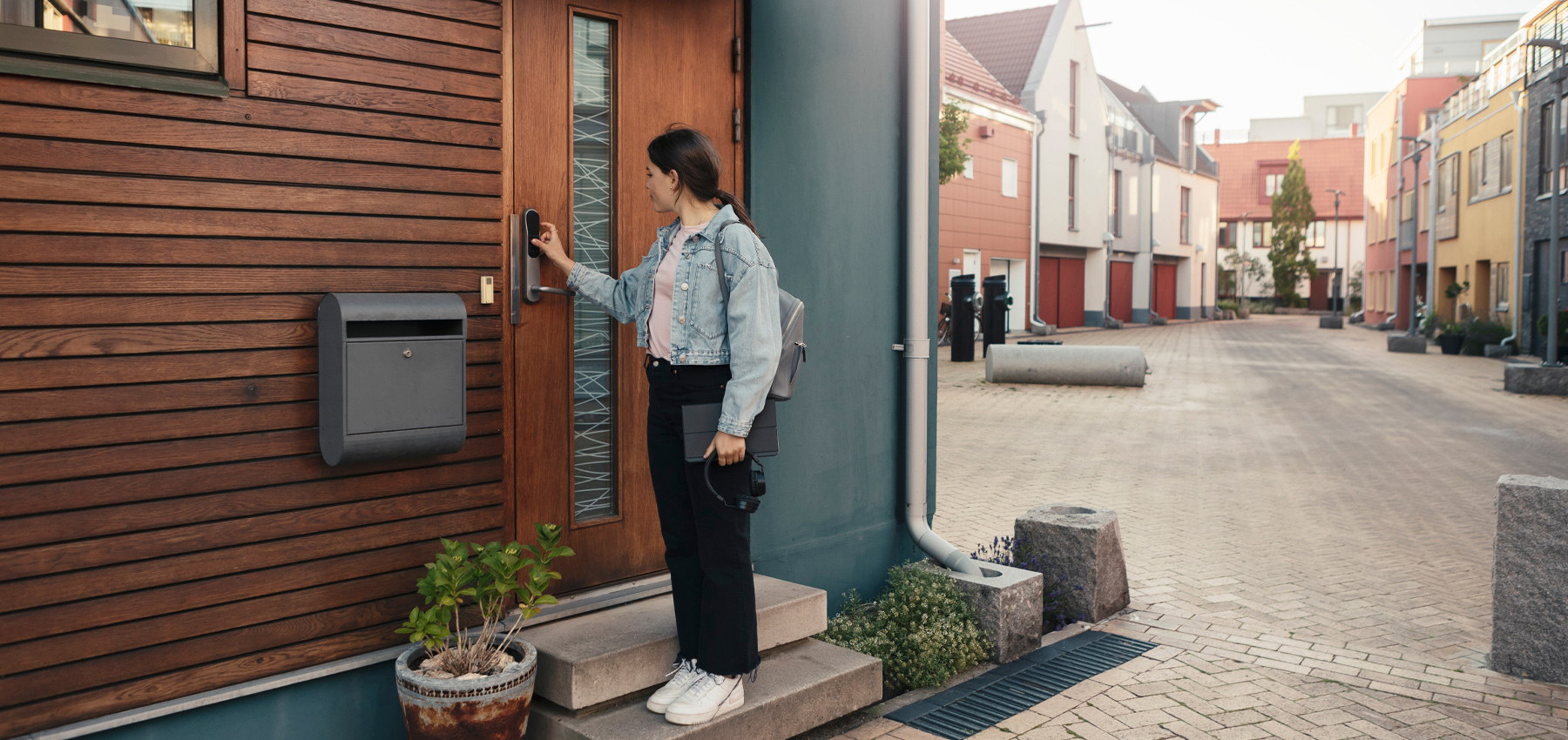Whether you’re a first-time renter or a veteran tenant, the process of renting a place in a new country can make you anxious, especially if you’re not completely familiar with the local norms and guidelines. In major Canadian cities, finding a place to rent without credit history can be a challenge for newcomers but that doesn’t mean you should impulsively sign a lease with the first landlord willing to accept you as a tenant.
In this article, we will share some important questions you should ask your landlord or your realtor before you decide to rent an apartment or a home. Answers to these questions will provide clarity on your living arrangement and what to expect.
Questions to ask your landlord or realtor before signing the lease
About the rent
1. How much is the monthly rent?
This is the most basic and obvious question and also a shortlisting criteria for many renters. Generally, the listed rent applies for the entire duration of the lease, which is often annual. If you’re considering a shorter lease, it might be worthwhile to check if you would be subject to periodic rent increases during the year.
At times, there could be local rules around rent increases. For instance, in some places rent can only be increased annually by a small percentage set by municipal authorities while in other cases, rent can increase dramatically from one month to another depending on how recent your building is or if new amenities are added to the building.
2. How much rent is due before moving in?
Depending on the province you are moving to, you may be expected to pay the first and last month rent with/without the security deposit, or the first month rent plus a security deposit. As a newcomer, if you don’t have a credit score or credit history, landlords may sometimes ask for additional months’ rent (they aren’t legally allowed to ask for it but can accept the money if the tenant offers to pay). Collectively, this can be a large amount to pay upfront. So, it’s good to understand the expectations right from the start to avoid surprises (or shocks) later on.
Additional reading:
|
3. Does the rent include any extra fees for each month?
Sometimes there may be additional fees included in the rent each month – usually for parking, storage locker, pets, or access to certain amenities in the building such as a swimming pool, party room, or the gym. Make sure you add all these extra costs while determining your actual rent.
4. What is included in the rent?
Some apartment buildings may have utilities such as heating, air conditioning, and water included in the rent while others may not. Inquire about the cost for things such as garbage/waste removal, pest control, maintenance costs for any broken appliances or fixtures, electricity (hydro), internet, cable TV, amenities like a party room, gym, pool, etc. If you’re renting a basement, ask about access to the backyard, if there’s one. Most rental units in Canada have a furnished kitchen with all main appliances included. But it’s a good idea to check if that isn’t the case.
Cost of utilities: The cost of air conditioning and heating is usually a majority of the utilities expenses so, budget accordingly. Hydro (excluding heating and AC) can average out to $50-80 CAD per month, water can be about $20-40 CAD per month, and internet and cable TV, combined, can cost well over $100 CAD per month. Also, if the gas and/or electricity is in the renter’s name, you may have to pay a security deposit that most utility companies require. |
5. If a security deposit applies, is it refundable? What are the conditions to getting the entire security deposit back?
In some Canadian provinces, you may have to pay a security deposit while renting an apartment. Some deposits are refundable, others aren’t. Make sure to check the conditions for your security deposit’s return and if there are any additional fees (such as for repairs, damage of any kind, or cleaning at the time of moving out, etc.) that would be charged.
6. What modes of rent payment are accepted?
Ask the landlord if they accept all methods (cash, cheques, e-transfer, bank transfer, etc.) or if a certain type of payment is preferred.
About the lease
1. What is the lease term?
Not every rental unit will have a year-long lease; some landlords may want you to commit to a shorter or longer lease.
A month-to-month lease gives you more flexibility but can also make you vulnerable to rent increase and evictions. A longer, more permanent lease can provide stability, protect you from rent increases, and offer some peace of mind. So, assess your options before you sign the lease. |
2. When is the expected move in date?
Apartments are typically listed for rent two months before the move-in date (for instance, an apartment advertised on August 1 becomes available October 1). Also, most rentals begin on the first of the month. However, there are always exceptions so it’s a good idea to check with the realtor and/or landlord in advance and plan your move accordingly.
3. Do you need a guarantor or references?
In the absence of a credit report, employment letter or proof of income, some landlords may ask you to provide a guarantor or references. A guarantor or a co-signer is someone who agrees to pay rent on your behalf if you are not able to. Being a guarantor or co-signer is legally-binding, and usually, only close friends or relatives will agree to act as a guarantor for you. You should also consider the impact on your relationship with them should you fail to hold up your end of the bargain.
4. Is parking included?
Not all rentals offer a dedicated parking spot. Ask about the parking situation for tenants as well as visitors and whether there’s any cost associated with it; factor this into your monthly rent.
5. Is separate storage space included or available to rent?
Rental units in big cities usually don’t have a lot of storage space. That’s why many apartment buildings offer storage lockers that can be rented separately. Similar to a parking spot, these can be an added cost each month. Depending on the vacancy rate of the unit and the locker, if you negotiate, the landlord may include the locker in your monthly rent at no additional cost. So, it’s always worth asking!
6. Are there restrictions on pets?
If you own pets or intend to get one, check if the building has any restrictions or fees for pets. Some landlords and rental/property management companies charge a pet deposit, a non-refundable pet fee, or even a monthly pet rent as part of a lease agreement.
7. What happens if you want or need to break the lease?
There are many life situations that may prompt you to move to a new place while you’re in the middle of a lease. It’s good to inquire about your options before you sign the lease so you know what to expect. Some landlords may ask you to buy your way out, while others may just want you to find a qualified tenant to take over your lease, and some may be OK with you subletting the unit.
8. Are you allowed to sublet?
Usually, there are rules and restrictions on subletting. Check with the landlord/realtor and the building management to understand the limitations.
9. Can you renew the lease?
If you like the place and intend to stay there long-term, it’s good to discuss the possibility of lease renewal from the get-go. Renewing the lease might be an issue if the landlord plans on selling the unit or renovating it in a year or few months.
10. Is renter’s insurance required?
Most rentals these days require tenants to have insurance. Even if you’re leasing a unit that doesn’t mandate having renter’s insurance, it may be worthwhile to get one. Renter’s insurance can protect you from any damages caused by natural calamities, plumbing issues, theft, etc.
About the apartment/unit/home
1. How many people can live in the unit? What is the visitor or guest policy?
Depending on the type of accommodation, there may be rules and limitations to having guests over and abiding with “quiet hours.” If you plan to live with roommates or have a large family, do check the tenant occupancy standards of the apartment before renting, especially if you intend to have long-term guests.
2. What will the landlord do to get the unit ready for your move in?
Don’t assume that all rental apartments are move-in ready. If the unit was previously occupied by other tenants, there may be some cleaning and maintenance required. It’s also a good idea to ask your landlord about the condition of all the appliances. Find out if they’re in good working condition or whether they’re nearing the end of their life and will need to be fixed/replaced.
3. Are you allowed to change anything in the unit?
Some landlords may not allow permanent changes to the property. Personalizing your space by hanging pictures or wall art, installing technology on a wall, etc. may be allowed but it’s always good to confirm.
4. How many sets of keys are there?
You should know how many sets of keys to your rental unit exist and who has them. Also check if you are allowed to make an extra set for your own use. The landlord will usually have a set of keys with them but know that they aren’t entitled to enter the unit without your knowledge; legally, they have to inform the tenant before they stop by. Knowing who has the keys can also be helpful in an emergency if you happen to lose your keys.
5. What is the laundry situation?
Not all apartments have in-suite laundry; some may have a laundry room on the same floor, there may be a common laundry room for the entire building, or there may not be a laundry room at all in the building. This may also impact the rent you pay, so it’s always good to check. If there’s a common laundry room, ask about laundry hours and the cost per load.
A rental lease protects your rights as a tenant and lists out landlord obligations – this may differ slightly by province and/or the landlord or the property management company. It is better to have all doubts cleared and questions answered before you sign a lease to ensure the rental is right for you and your loved ones.




